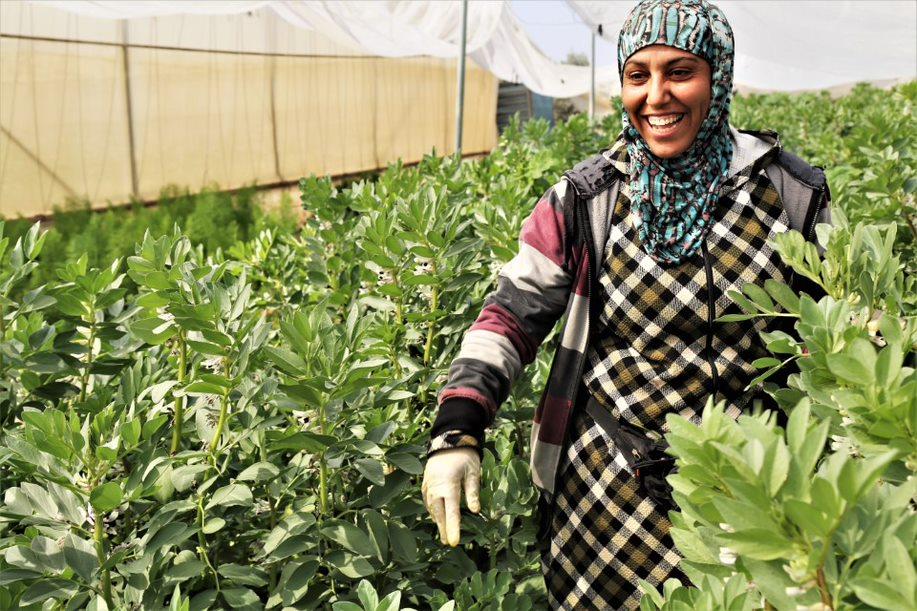Iman Turkman: “We are all actively working together.”

Iman working her field.
Iman is a teacher and farmer who lives in Al Agrabanya near Nablus City in the north of the West Bank. Agriculture and caring for the land have been part of her life since her days as a student.
In 2010, Iman and others from her community formed an association to help women in this rural village generate sustainable sources of income. They began with Tatreez, traditional Palestinian embroidery, then expanded operations to include production of thyme, parsley and some vegetables.
“Back when I started talking to my family about my intention to start a women’s association, they did not think it was going to be feasible. Look at us now!”
Production and processing losses posed early challenges. Then in 2018, FAO began providing in-kind and technical support to the association through a Canadian government-funded project, which included the construction of a packinghouse—an essential addition.
Before the construction of this house, the association tended to lose significant amounts of their production for lack of shelter from the rain and heat, which could damage the leafy produce. Since then, the women have cut production losses by roughly 30 percent. In 2019, they made their highest profit yet, selling products worth USD 14 500.
Today, Iman leads approximately 50 women—mothers, daughters, wives and teachers. The farmers also use the packinghouse for capacity-building activities and, when needed, as a shelter for breastfeeding babies during work breaks.
Iman hopes to do more to boost product marketing, especially in organic vegetables.
“I have a lot of ideas and I will put them into action when I have the time and resources.”
This food hero is always looking for new ways to grow sustainably and benefit her community.
